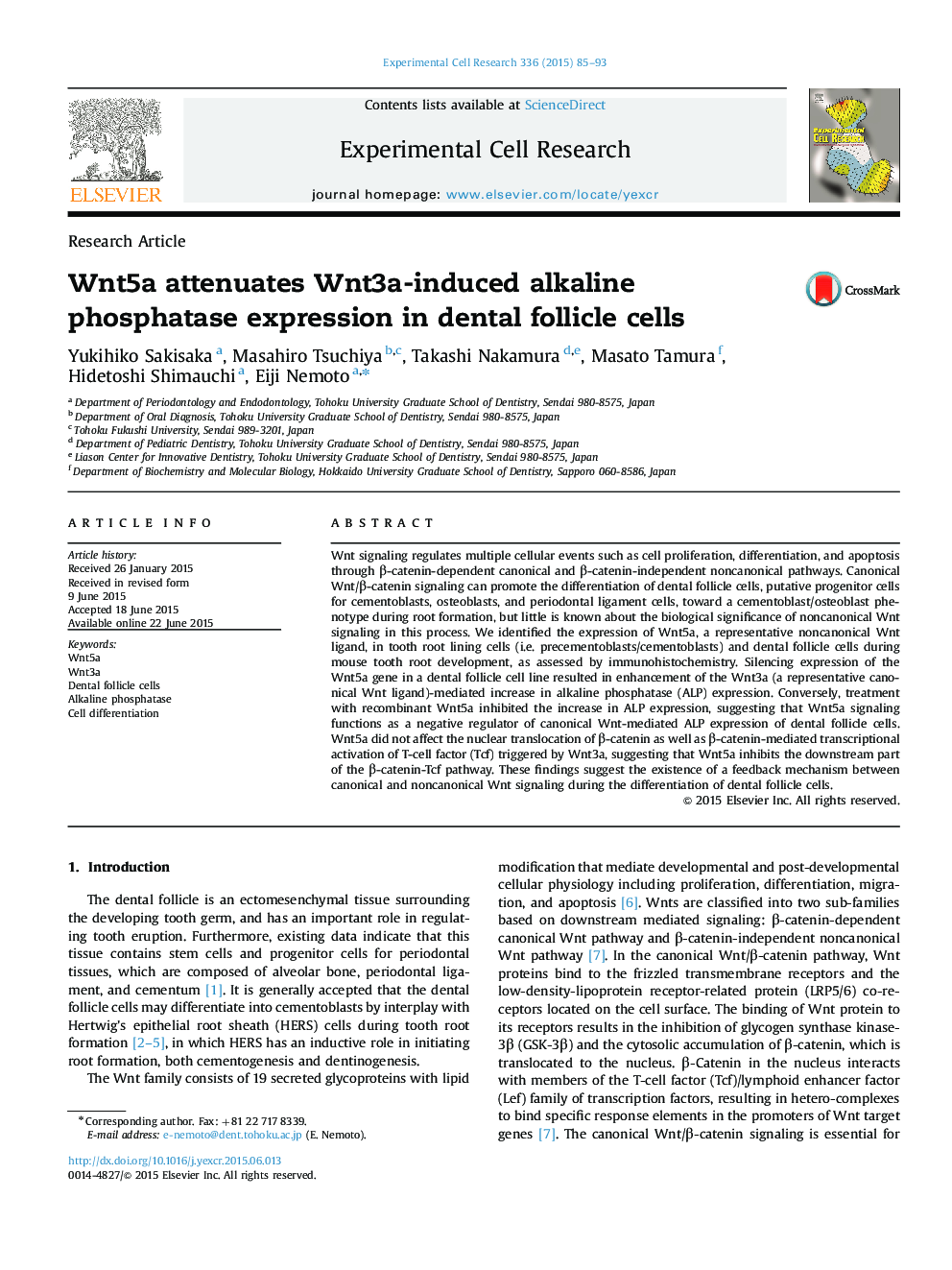| Article ID | Journal | Published Year | Pages | File Type |
|---|---|---|---|---|
| 10903868 | Experimental Cell Research | 2015 | 9 Pages |
Abstract
Wnt signaling regulates multiple cellular events such as cell proliferation, differentiation, and apoptosis through β-catenin-dependent canonical and β-catenin-independent noncanonical pathways. Canonical Wnt/β-catenin signaling can promote the differentiation of dental follicle cells, putative progenitor cells for cementoblasts, osteoblasts, and periodontal ligament cells, toward a cementoblast/osteoblast phenotype during root formation, but little is known about the biological significance of noncanonical Wnt signaling in this process. We identified the expression of Wnt5a, a representative noncanonical Wnt ligand, in tooth root lining cells (i.e. precementoblasts/cementoblasts) and dental follicle cells during mouse tooth root development, as assessed by immunohistochemistry. Silencing expression of the Wnt5a gene in a dental follicle cell line resulted in enhancement of the Wnt3a (a representative canonical Wnt ligand)-mediated increase in alkaline phosphatase (ALP) expression. Conversely, treatment with recombinant Wnt5a inhibited the increase in ALP expression, suggesting that Wnt5a signaling functions as a negative regulator of canonical Wnt-mediated ALP expression of dental follicle cells. Wnt5a did not affect the nuclear translocation of β-catenin as well as β-catenin-mediated transcriptional activation of T-cell factor (Tcf) triggered by Wnt3a, suggesting that Wnt5a inhibits the downstream part of the β-catenin-Tcf pathway. These findings suggest the existence of a feedback mechanism between canonical and noncanonical Wnt signaling during the differentiation of dental follicle cells.
Related Topics
Life Sciences
Biochemistry, Genetics and Molecular Biology
Cancer Research
Authors
Yukihiko Sakisaka, Masahiro Tsuchiya, Takashi Nakamura, Masato Tamura, Hidetoshi Shimauchi, Eiji Nemoto,
